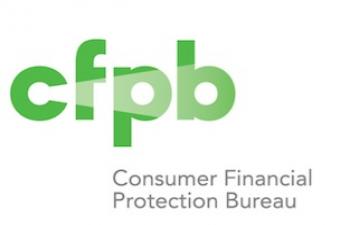The ""Consumer Financial Protection Bureau"":http://www.consumerfinance.gov (CFPB) is taking major steps toward considering consumer protection rules for the debt collection market.
Through an ""Advance Notice of Proposed Rulemaking"":http://files.consumerfinance.gov/f/201205_cfpb_GPRcards_ANPR.pdf (ANPR) issued Wednesday, the bureau is gathering information on a wide array of issues related to debt collection practices, including the accuracy of information used by debt collectors, how to ensure consumers know their rights, and the communication tactics collectors employ to recover debts.
[IMAGE]""For decades, many consumers have reported various unacceptable practices in the debt collection industry. Today's action will allow us to hear from the public as we consider what rules are needed,"" said Richard Cordray, director of the CFPB. ""We want to ensure that all players in the industry are working with correct information, that consumers are fully informed, and that consumers are treated fairly and with dignity.""
There are many players in the multi-billion dollar debt collection market, including banks, other original creditors, and third-party debt collectors hired to work on behalf of the original creditors. It is estimated that there are more than 4,500 debt collection firms in the United States.
The main law that governs the industry and protects consumers is the 1977 Fair Debt Collection Practices Act (FDCPA). In 2010, the Dodd-Frank Wall Street Reform and Consumer Protection Act revised the FDCPA, making the bureau the first agency with the power to issue substantive rules under the statute.
Debt collection has long been one of the most complained about subject areas to government regulators, including the ""Federal Trade Commission"":http://www.ftc.gov (FTC). In July, the CFPB began accepting debt collection complaints and it has quickly become one of the highest categories of grievances. Consumer complaints include that collectors harass them, demand amounts they do not owe, and threaten dire circumstances if they don't pay, such as jail. The ANPR seeks a wide array of feedback on debt collection issues.
The Consumer Complaint Database allows the public to see: what consumers complained about; why, how, and when the company in question responded; and whether the response was timely. A consumer's identity and other personal information are not included. The database currently contains more than 155,000 complaints on a wide variety of financial consumer issues, including mortgages, student loans, and credit cards.
[COLUMN_BREAK]The CFPB is concerned about the transfer of information from an original creditor to third-party debt collection firms and debt buyers, and from those parties to other debt collectors and credit bureaus. The CFPB wants to know how documents and records are currently transferred and how to improve the accuracy of that information. The bureau believes that ensuring the integrity of information within the debt collection system is critically important. Among the questions the ANPR raises is how federal rules could better ensure that debt collectors have the correct person, correct amount, and the correct documentation.
The bureau also announced Wednesday that it will begin adding consumer complaints about debt collections to its public Consumer Complaint Database. The CFPB wants to ensure that consumers have a clear understanding of their rights in the debt collection process.
The bureau is concerned that the disclosures and information that are currently provided to consumers may be confusing or incomplete. Among the questions the ANPR raises is whether federal rules can better ensure that consumers receive clear information about their debts and adequate information about legal rights.
The CFPB wants to make sure consumers are treated fairly and with respect, regardless of whether the collector is the creditor, a collector working on behalf of the creditor, or a debt buyer or third-party debt collector.
Debt buyers and third-party debt collectors are already, generally, prohibited from engaging in acts that annoy, abuse, or harass consumers under the FDCPA. In its ANPR, the CFPB is asking for feedback on whether harmful communication tactics are happening that are not specifically addressed in the FDCPA. Among the issues the ANPR raises is how federal rules can better regulate contact frequency, contact methods, contact claims.
The CFPB is working with the Cornell University e-Rulemaking Initiative to make it easier for the public to comment through a project called Regulation Room. Regulation Room provides an online environment for people and groups to easily learn about, discuss, and react to proposed rules or ANPRs by federal agencies. Individual contributions about the CFPB's ANPR will be incorporated into a report prepared by Cornell researchers and submitted to the bureau.
Consumers, consumer groups, debt collectors, industry representatives, and other stakeholders can also comment on the ANPR by following the instructions on ""Regulations.gov"":http://www.regulations.gov. The public will have 90 days from when the ANPR is published in the Federal Register to review and provide comments.
The CFPB has also added approximately 5,000 consumer debt collection complaints to its Consumer Complaint Database. These are complaints the CFPB has received and that companies have responded to since the CFPB began accepting debt collection complaints on July 10.
Currently, debt collection is on par with mortgages in terms of daily complaint volume, with both accounting for approximately 30 percent of consumer grievances. Among the topics consumers are contacting the CPFB about are collection activities, underlying debt, and credit reporting. The expanded Consumer Complaint Database was updated Wednesday at 9 a.m.

 theMReport.com Your trusted source for mortgage banking news
theMReport.com Your trusted source for mortgage banking news









